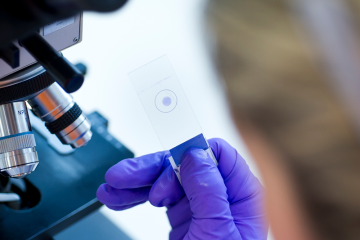Project grant
A human ex vivo model of haemostasis: A replacement for rodent tail bleeding assays

At a glance
In progress
Award date
February 2023 - January 2025
Grant amount
£198,933
Principal investigator
Dr Sarah Jones
Co-investigator(s)
Institute
Manchester Metropolitan University
R
- Replacement
Read the abstract
View the grant profile on GtR
